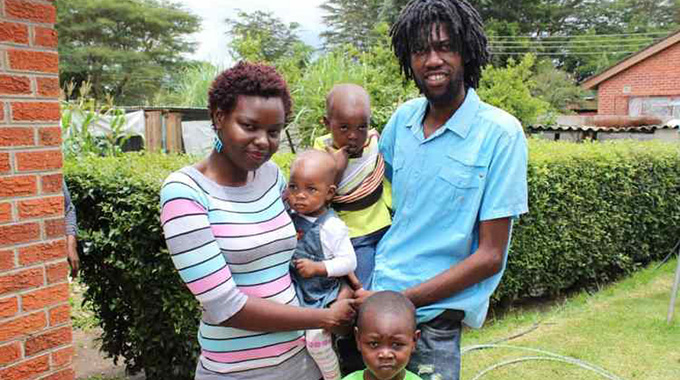Tackling GBV through theater

Nqobile Nkiwane – FAWEZI Information and Communications officer.
As we wrap up the 16 Days of Activism against Gender Based Violence (GBV) it is important to carry forward the momentum of exposing its occurrence.
Collective action on identifying, reporting and acting against GBV is a critical component of reducing GBV in the home, workplace, schools and communities at large. Everybody has to play their role in ending the cloak of silence around GBV.
The question still remains on how best to make the vulnerable groups speak out on GBV, how to equip them with skills to reduce their risk of being victims of the perpetrators of the social ill. Forum for African Women Educationalists Zimbabwe Chapter (FAWEZI) is currently is implementing a project titled Empowered Adolescent Girls for Improved Quality of Life with support from Action Aid Zimbabwe (AAZ) and in partnership with Leonard Cheshire Disability Zimbabwe (LCDZ) and Aids Counselling Trust (ACT).
FAWEZI’s goal is to increase access, improve retention and enhance the quality of education for girls and women in Zimbabwe.
So as an implementing partner in the project, FAWEZI is using a learner-centred empowerment model that uses theatre-for-development techniques to identify and address concerns that hinder girls’ social and academic development.
This program entitled Tuseme (Kiswahili word which means let us speak out/ Khuluma Uzwakale /Taura unzwike) is being used to train girls to identify and understand the problems that affect them, articulate these problems, and act to solve them.
Through drama and song girls are learning negotiation skills, how to speak out, decision making and leadership skills.
As a starting point FAWEZI held a three day Tuseme training of trainers in the Chitungwiza and Shamva districts where participants were equipped on how to implement the Tuseme process in their respective schools.
The trained teachers and learners in turn went back to their schools and trained others and at the same time launching school level Tuseme Clubs.
Tuseme also trains education staff in order to create more gender sensitiveness and, at the same time, involves the participation of community members.
Overall, it promotes gender awareness among all stakeholders involved in the education of girls.
With a focus on Sexual Reproductive health and Rights, Violence against Girls and life skills issues, the Tuseme programme will reach about 2000 girls and 500 boys with 175 of them being adolescents with disabilities by July 2020. The clubs are now on the roll in all the ten project schools in the two districts and have since achieved positive outcomes.
Speaking after the launch of the Tuseme club at Wadzanayi High School in Shamva the school head Mr Gaihai said the model has brought a lot of confidence to the learners in terms of speaking out on GBV.
“The Tuseme club has kindled the urge and confidence to expose threats and actions of GBV that our learners face in and out of school,” he said.
“We now want to make sure that the club members share their acquired knowledge with the rest of the school especially during assemblies so that everyone is empowered.”
Mr Chabata a teacher at the same school showed much amusement with the level of participation displayed by the learners during the Tuseme process.
“If you give time to learners they will definitely open your eyes, this program has created an empowerment vehicle for the vulnerable groups to really speak out,” he said.
The learners represented by the club chairperson Priscilla Rutunga (form 3) said they were happy because the program managed to bring the school heads, teachers, parents and other stakeholders into an open discussion with them.
“Tuseme has helped us to initiate conversations with our teachers even on topics that we were scared to talk about as learners,” she said.
“Even in class the teachers are now friendly and also balancing the participation between boys and Girls.”
Another learner Petronella Katandike said Tuseme has made the learners aware of their rights and responsibilities.
“We now know that as a child besides claiming rights we also need to perform our responsibilities like assisting teachers and parents in doing some chores and tasks,” she said.
Through the Tuseme clubs teachers and the school stakeholders were awakened to issues of dire shortages of safe water, long distances to school, and subtle forms of abuse and child marriages among others as issues affecting school going girls.
The entire “Empowered Adolescent Girls for Improved Quality of Life Project” aims to increase empowerment and improved quality of life amongst adolescent girls in Shamva, Chitungwiza and Hopeley by implementing unique best practices and models to address three areas: Violence against Women and Girls (VAWG), Comprehensive Sexuality Education (CSE) and Economic Empowerment (EE).
Tuseme/Let us Speak Out was first introduced in Tanzania at the University of Dar Es Salaam in 1996 as a step towards enabling the involvement of girls in discussing problems affecting them.
FAWEZI is an affiliate to FAWE, a Pan-African organization based in Nairobi, Kenya. FAWE, which is represented in 35 countries in Africa, was founded in 1992, with the goal of promoting access, increasing retention and enhancing the quality of education for girls and women in Africa.
Its mission is to work at provincial, district and school levels, together with partners, to create positive societal attitudes, policies and practices that promote equity for girls in terms of access, retention, performance and quality of education.








Comments